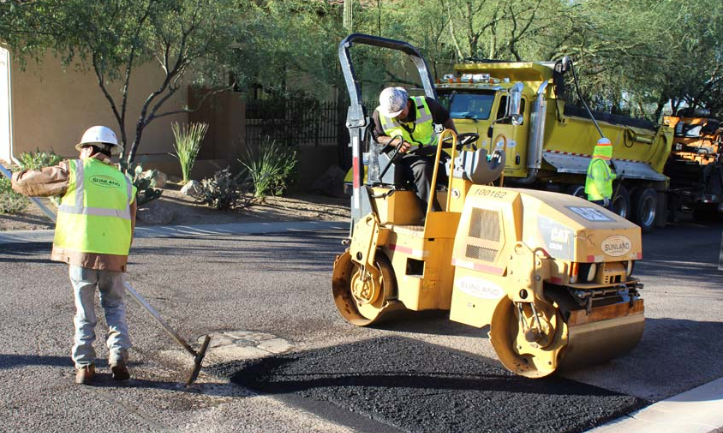Ensuring Longevity and Durability of Asphalt Surfaces: The Importance of Quality Control and Maintenance in Asphalt Paving
by siteadmin

Asphalt surfaces are essential components of our infrastructure, providing durable and reliable roadways, parking lots, and driveways. However, to maintain their longevity and durability, proper quality control and maintenance practices are crucial. In this blog post, we’ll explore the significance of quality control and maintenance in asphalt paving and discuss strategies for ensuring the continued integrity of asphalt surfaces over time.
The Importance of Quality Control:
Quality control is a fundamental aspect of asphalt paving, ensuring that materials and construction processes meet predetermined standards and specifications. By implementing rigorous quality control measures, paving professionals can identify and address potential issues early on, preventing costly repairs and premature deterioration of the pavement. Here are some key elements of quality control in asphalt paving:
- Material Testing: Quality control begins with testing the materials used in asphalt paving, including aggregates, binders, and additives. Laboratory tests such as gradation analysis, asphalt content determination, and performance testing help ensure that the materials meet the required specifications for strength, durability, and workability.
- Proper Mix Design: Optimizing the asphalt mix design is essential for achieving the desired performance and longevity of the pavement. Through careful selection of aggregate sizes, binder types, and additive proportions, engineers can tailor the mix to withstand specific traffic loads, climate conditions, and environmental factors.
- Monitoring Construction Processes: During construction, quality control inspectors monitor various aspects of the paving process, including temperature control, compaction efforts, and surface smoothness. By conducting regular inspections and tests, they can identify any deviations from the project specifications and take corrective action as needed to ensure the integrity of the finished pavement.
- Post-Construction Evaluation: Quality control doesn’t end when the asphalt is laid. Post-construction evaluations, such as density testing, smoothness measurements, and visual inspections, help verify the performance of the pavement and identify any deficiencies that may require remediation.
The Role of Maintenance in Asphalt Paving:
While quality control ensures that the initial construction meets established standards, ongoing maintenance is essential for preserving the longevity and durability of asphalt surfaces. Regular maintenance activities help prevent deterioration, extend the lifespan of the pavement, and minimize the need for costly repairs. Here are some common maintenance practices in asphalt paving:
- Sealcoating: Sealcoating is the process of applying a protective coating to the surface of the asphalt to shield it from water infiltration, UV radiation, and other environmental hazards. This helps prevent oxidation, cracking, and deterioration of the pavement, prolonging its lifespan and reducing the frequency of repairs.
- Crack Sealing: Cracks in the asphalt surface allow water and debris to penetrate the pavement, leading to further damage and deterioration. Crack sealing involves filling and sealing the cracks to prevent moisture ingress and inhibit the growth of vegetation, preserving the integrity of the pavement.
- Regular Inspections: Routine inspections of the asphalt surface allow maintenance crews to identify and address any emerging issues before they escalate into more significant problems. Inspections may include visual assessments, surface condition surveys, and non-destructive testing techniques such as ground-penetrating radar.
Quality control and maintenance are indispensable components of asphalt paving, ensuring the longevity, durability, and performance of asphalt surfaces over time. By implementing robust quality control measures during construction and adhering to a proactive maintenance regimen post-construction, paving professionals can ensure that our roads, parking lots, and driveways remain safe, smooth, and functional for years to come.
Asphalt surfaces are essential components of our infrastructure, providing durable and reliable roadways, parking lots, and driveways. However, to maintain their longevity and durability, proper quality control and maintenance practices are crucial. In this blog post, we’ll explore the significance of quality control and maintenance in asphalt paving and discuss strategies for ensuring the continued…
Recent Posts
- Asphalt Sealing Rochester NY – A Women-Owned Business With a Mobile App
- Asphalt Sealing Rochester NY – A Women-Owned Business With a Mobile App
- Maximizing the Longevity of Your Driveway: Effective Maintenance Strategies with Protective Sealants
- Full-Depth Asphalt Repair: Addressing Structural Issues Beneath the Surface
- Choosing the Right Driveway Repair Materials: Assessing Durability and Longevity
